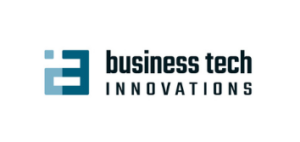
In today’s digital age, the use of surveillance technologies has become increasingly prevalent across various industries. Businesses harness the power of surveillance tools for purposes ranging from security enhancement to operational efficiency. However, this widespread adoption raises ethical considerations that demand careful examination. In this article, we delve into the ethical implications surrounding surveillance technologies in business and the vital importance of respecting privacy rights.
The Ubiquity of Surveillance
Surveillance technologies are omnipresent in the modern business landscape. From CCTV cameras in retail stores to employee monitoring software in corporate offices, businesses rely on these tools to monitor, protect, and streamline their operations. The ubiquity of surveillance is a testament to its value in enhancing security, deterring misconduct, and improving productivity.
Yet, with great power comes great responsibility, and businesses must navigate the ethical complexities that come with surveillance.
Ethical Considerations in Business Surveillance
Invasion of Privacy
One of the most significant ethical dilemmas associated with surveillance in business is the potential invasion of privacy. Monitoring employees’ every move, tracking their online activities, or scrutinizing customer behavior without their knowledge or consent can infringe upon individuals’ rights to privacy.
For instance, recent reports revealed that Amazon faced criticism for deploying cameras in delivery vehicles to monitor drivers’ behavior, allegedly to improve safety. However, drivers expressed concerns about the invasive nature of constant monitoring, leading to questions about consent and transparency.
Consent and Transparency
Businesses must grapple with the question of consent. Do employees and customers know that they are under surveillance? Transparency about surveillance practices is crucial to ensure that individuals are aware of the monitoring and can make informed decisions about their participation with the business.
In the retail sector, there have been cases where stores used facial recognition technology to track customers’ movements without their knowledge. This raised ethical concerns about privacy and data security (Read more).
Legal Frameworks and Regulations
To address these ethical concerns, many countries have enacted stringent privacy laws and regulations. For instance:
- The General Data Protection Regulation (GDPR) in the European Union places strict requirements on businesses collecting and processing personal data, including surveillance data. Non-compliance can result in hefty fines.
- The California Consumer Privacy Act (CCPA) mandates that businesses inform consumers about the data they collect and allow consumers to opt out of having their data sold.
Case Studies
Amazon’s Employee Surveillance
In 2020, Amazon faced criticism for its surveillance practices. The company was reported to have deployed cameras in delivery vehicles to monitor drivers’ behavior, allegedly to improve safety. However, drivers expressed concerns about the invasive nature of constant monitoring, leading to questions about consent and transparency.
Retail Store Surveillance
Retailers often use surveillance cameras for security purposes. However, there have been cases where stores used facial recognition technology to track customers’ movements without their knowledge. This raised ethical concerns about privacy and data security.
The Importance of Ethical Surveillance
Embracing ethical surveillance practices is not just a matter of compliance but also a means to foster trust among employees, customers, and stakeholders. When surveillance respects privacy rights and is conducted transparently, it can:
- Promote a culture of trust within the organization.
- Mitigate legal risks and potential liabilities.
- Demonstrate a commitment to ethical conduct, enhancing a company’s reputation.
How to Strike the Balance
To strike a balance between business needs and ethical considerations:
- Implement clear surveillance policies that detail the purpose, scope, and duration of monitoring.
- Provide employees and customers with information about surveillance practices and obtain their consent where necessary.
- Invest in privacy-enhancing technologies, such as anonymization and encryption, to protect individuals’ data.
Privacy by Design
To ensure ethical surveillance, businesses should adopt a “privacy by design” approach. This means incorporating privacy considerations into the development of surveillance systems from the outset, rather than as an afterthought.
In conclusion, the ethical use of surveillance technologies in business is a critical concern in our digital age. While these tools offer numerous benefits, businesses must respect privacy rights, maintain transparency, and adhere to legal regulations. Ethical surveillance practices not only uphold individuals’ rights but also contribute to trust, integrity, and long-term success in the business world.




